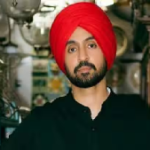Displaced from their homeland three decades ago, the Kashmiri Pandit community is now striving to reconnect with their roots through political engagement. As elections approach, around 14 Kashmiri Pandit candidates are contesting from Kashmir, with more expected to file their nominations in the third phase.
On October 8, when Jammu and Kashmir election results are scheduled to be announced, the Kashmiri Pandit community will eagerly anticipate the outcome. They hope for representation in the Jammu and Kashmir Assembly to address their concerns, including a dignified return to the Valley and proper rehabilitation. Traditionally, Kashmiri Pandits only contested the Habba Kadal seat in Srinagar, which has the highest number of Pandit voters. However, this election has seen the community expand their focus, with candidates running in Pulwama, Anantnag, and north Kashmir, in addition to Srinagar.
Unlike previous elections, many parties have fielded Kashmiri Pandit candidates, with some running as independents. Mohit Bhan, a PDP spokesperson, said, “The renewed enthusiasm for political participation among Pandits, despite past hindrances. It’s a good thing Kashmiri pandits are participating.”
Sanjay Tikoo, president of the Kashmiri Pandit Sangharsh Samiti, said, “It’s a good change if there is no agency behind this. I saw a lady who is contesting in Pulwama how people were welcoming her but there should be no agenda behind this. We should encourage people not to do politics, and in Habba Kadal many candidates are contesting there should have been a consensus then was hope that some Kashmiri pandit may get elected as MLA.”
Candidates of the community say they want to work for their community and want their voices to be heard. They seek representation to advocate for their rehabilitation, alleging that political parties have lacked a comprehensive blueprint for their return over the past 35 years. They are hopeful that the majority Muslim community in Kashmir will support them.
Independent candidate Ashok Kumar urged voters to consider Pandit candidates, emphasizing that the community has much to contribute. He said that positive changes, such as a decrease in violence, and encouraged voters to move beyond traditional politics.
For the first time since the onset of terrorism in Kashmir, two Pandit women are also contesting elections: Daisy Raina from the Republican Party of India, a former Sarpanch from Pulwama, and Arti Nehru from Sopore in North Kashmir. Their candidacies represent a significant step forward for the community.



